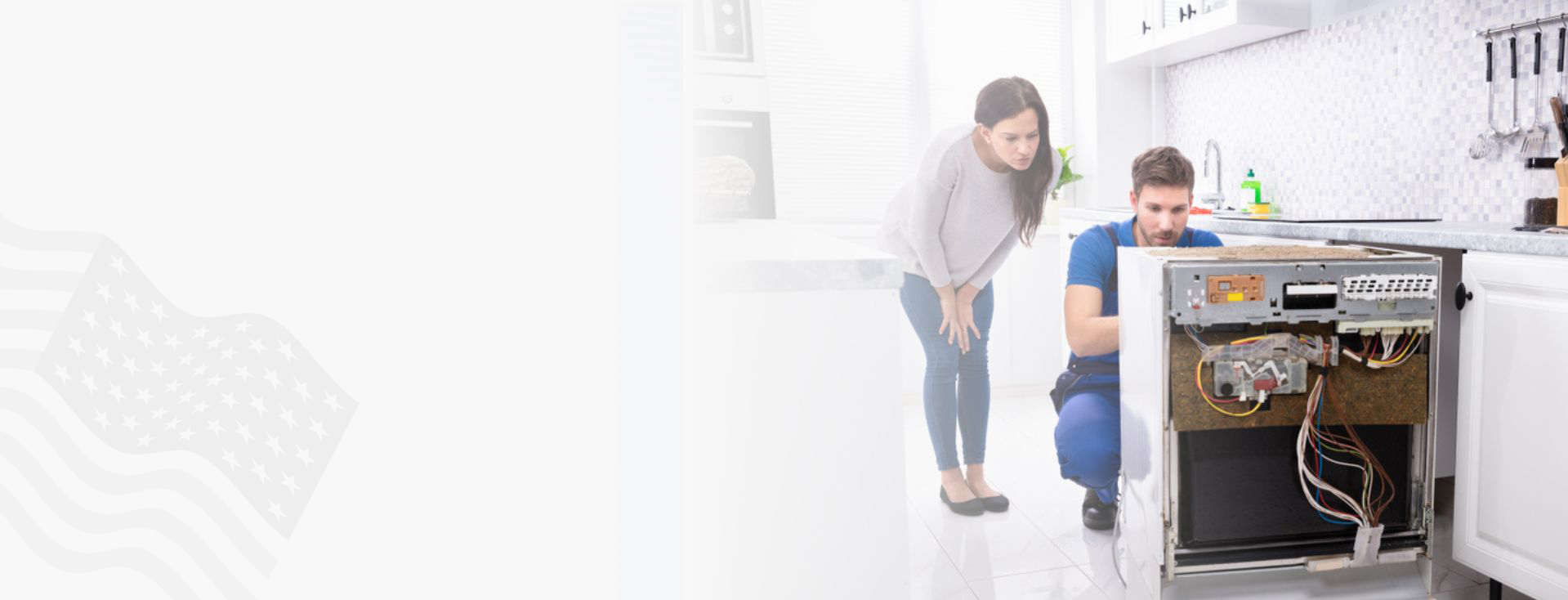Safety Steps First – Kenmore Dryer Repair Oro Valley Dependable Refrigeration & Appliance Repair Service
Safety Steps First – Kenmore Dryer Repair Oro Valley Dependable Refrigeration & Appliance Repair Service
Blog Article
The Ultimate Guide to Comprehending Device Fixing at Home
When your refrigerator quits cooling or your stove rejects to heat, it can feel overwhelming. Understanding home appliance repair service in the house can save you time and money. You'll discover to acknowledge symptoms, utilize vital devices, and comply with a systematic troubleshooting process. Before you start, there are vital safety and security preventative measures you need to take into account. What are one of the most common troubles, and exactly how can you fix them? Let's explore the fundamentals.
Common Device Problems and Their Signs
When your home appliances begin breaking down, it's important to identify the indicators early. Disregarding them can bring about larger issues and pricey repairs. If your refrigerator isn't cooling correctly, you could notice cozy areas or condensation forming. This can suggest a failing compressor or a blocked vent.Your dishwasher may show problems via dirty recipes or unusual noises during cycles. If you listen to grinding or clanking, it's time to investigate.A cleaning device that won't spin or drain can leave you with soaked laundry, suggesting a stopped up drain or a malfunctioning pump.Lastly, if your stove's temperature level seems off or it takes forever to preheat, you could be taking care of a defective thermostat. By remaining alert to these symptoms, you can resolve issues prior to they intensify into significant repair services.
Vital Tools for Appliance Repair
When you're dealing with appliance repair work at home, having the right tools is vital. Fundamental hand tools like screwdrivers and pliers will certainly aid you dismantle and repair numerous home appliances, while electric screening gadgets ensure you're functioning safely with electrical wiring. Let's review what you require to get going on your repair service trip.
Fundamental Hand Tools
Having the right tools is important for reliable device repair work in your home. Begin with a reliable screwdriver set, consisting of both flathead and Phillips kinds, as screws prevail in device setting up. Pliers are likewise important; they assist with gripping, turning, and cutting wires or tiny components. A set of needle-nose pliers can reach difficult situations quickly. You'll need a great flexible wrench for tightening up or loosening nuts and bolts. An energy knife comes in handy for cutting via packaging or insulation. Do not fail to remember a sturdy workbench or surface area to safely arrange your tools and components. With these standard hand tools, you'll be well-prepared to take on most appliance repairs that come your way.
Electric Screening Instruments
Along with basic hand tools, electric testing devices play an essential duty in device repair work. These devices help you diagnose electrical issues and guarantee home appliances operate securely. A multimeter is vital; it determines voltage, existing, and resistance, allowing you to pinpoint issues swiftly. A non-contact voltage tester is an additional must-have, letting you find real-time cables without making straight get in touch with, boosting your security. Clamp meters are great for gauging existing flow in wires without separating them, conserving you effort and time. Furthermore, circuit testers can quickly examine if outlets are working effectively. By using these tools, you'll simplify your troubleshooting process and boost your repair skills, making appliance upkeep a lot easier.
Step-by-Step Guide to Diagnosing Home Appliance Issues
When your home appliance breaks down, it can be frustrating, yet diagnosing the issue doesn't have to be overwhelming. You'll learn to identify common problems and use efficient repairing techniques. Let's stroll with the steps to get your appliance back in functioning order.
Typical Home Appliance Issues

Repairing Methods Discussed

Repairing Significant Cooking Area Home Appliances: A Closer Look
Have you ever wondered how to deal with typical concerns with your cooking area home appliances? Fixing major cooking area devices like refrigerators, stoves, and dish washers can be easier than you think. Begin by determining the problem-- whether it's a refrigerator not cooling down or a stove that will not heat up. Commonly, an easy reset or inspecting the power source can address the issue.For refrigerators, clean the condenser coils and check the door seals. If your stove's not home heating, inspect the home heating element and thermostat. Dishwashing machines could simply need a tidy filter or a reset to get them back in action. website Always unplug the appliance prior to diving into repairs to guarantee your safety.Don' t forget to consult the customer handbook for details troubleshooting suggestions associated to your version. With a little persistence and the right devices, you can confidently deal with home appliance repair services and conserve cash while doing so!

Troubleshooting Laundry Equipments: Tips and Techniques
When your washing home appliances start breaking down, it can feel overwhelming, yet troubleshooting them doesn't have to be an inconvenience. Begin by inspecting the power supply. Verify the home appliance is plugged in and the electrical outlet is operating. Next off, evaluate the door or cover switch; a faulty switch can prevent the maker from operating.For washers, if it's not spinning, check for out of balance tons. Redistributing the clothing could solve the issue. If your clothes dryer isn't heating, clean the dust filter and examine the vent for blockages.Listen for unusual noises; they can suggest a trouble. If your appliance is leaking, examine the hoses for splits or loose connections. Document any type of mistake codes shown on electronic displays, as they can guide you in recognizing the concern. Speak with the individual guidebook for particular troubleshooting suggestions associated to your version.
Security Precautions to Take Throughout Repair works
Prior to you start any kind of appliance fixings, it's vital to prioritize safety to protect against mishaps or injuries. First, unplug the device or switch off the breaker to assure no power reaches it while you work. Usage shielded tools to minimize the danger of electrical shock. Wear safety goggles and handwear covers to secure yourself from sharp edges or debris (Dependable Refrigeration & Appliance Repair Service Dryer repair near me).Make specific your office is tidy and well-lit, so you can see what you're doing. Keep children and pet dogs away from the location to prevent disturbances and prospective hazards. If you're handling gas devices, be extra cautious; look for leaks prior to proceeding.Take your time, and don't rush with fixings. If you feel unpredictable concerning any step, it's far better to pause and research than to presume. Adhering to these preventative measures will certainly assist develop a much safer environment for your do it yourself device repair task
When to Call a Specialist for Assistance
Just how do you recognize if it's time to call in a professional for appliance repairs? If you've attempted basic troubleshooting without success, it's a clear sign. If your device still won't start or reveals uncommon sounds after resetting it, do not hesitate to look for specialist help.When you notice leaks, smoke, or melting scents, prioritize safety and security and call a pro immediately. These concerns can lead to even more considerable damages or present dangers to your home.Also, if your appliance is under warranty, speaking to an expert is frequently the most effective route. They can assure that repair services won't nullify your guarantee, saving you money in the long run.Finally, if you're not sure or awkward with intricate repair services, it's a good idea to leave it to the specialists. Keep in mind, tackling difficult concerns without the best knowledge can result in expensive mistakes. Trust fund an expert when doubtful!
Frequently Asked Questions
How Can I Prevent Home Appliance Troubles in the Future?
To avoid appliance problems in the future, you must execute regular maintenance, look for wear and tear, tidy filters, and avoid overloading. Staying proactive will certainly help prolong their life-span and maintain them running smoothly.
What Are one of the most Common Do It Yourself Appliance Repair Work Mistakes?
You could ignore safety and security preventative measures, skip troubleshooting actions, or make use of wrong tools when trying DIY appliance fixings. Hurrying the procedure or ignoring manufacturer guidelines can result in even more considerable issues and costly blunders. Remain individual and informed!
How Do I Know if a Component Requirements Substitute?
You can inform if a component requires replacement by examining for unusual noises, leaks, or irregular performance. If the home appliance has a hard time to operate properly or reveals noticeable damage, it's most likely time for a substitute.
Can I Use Generic Components for Home Appliance Fixes?
Yes, you can make use of common parts for device repair services, but establish they're suitable - Dependable Refrigeration & Appliance Repair Service Washing Machine Repair. Common parts might conserve you money, yet they might impact performance or longevity, so consider your choices very carefully prior to making a choice
What Service Warranties Cover Device Fixes?
The majority of device service warranties cover repairs for producing defects, however they typically exclude damage from abuse. Inspect your guarantee terms carefully, as some could need making use of certified technicians and initial components for protection to stay legitimate.
Report this page